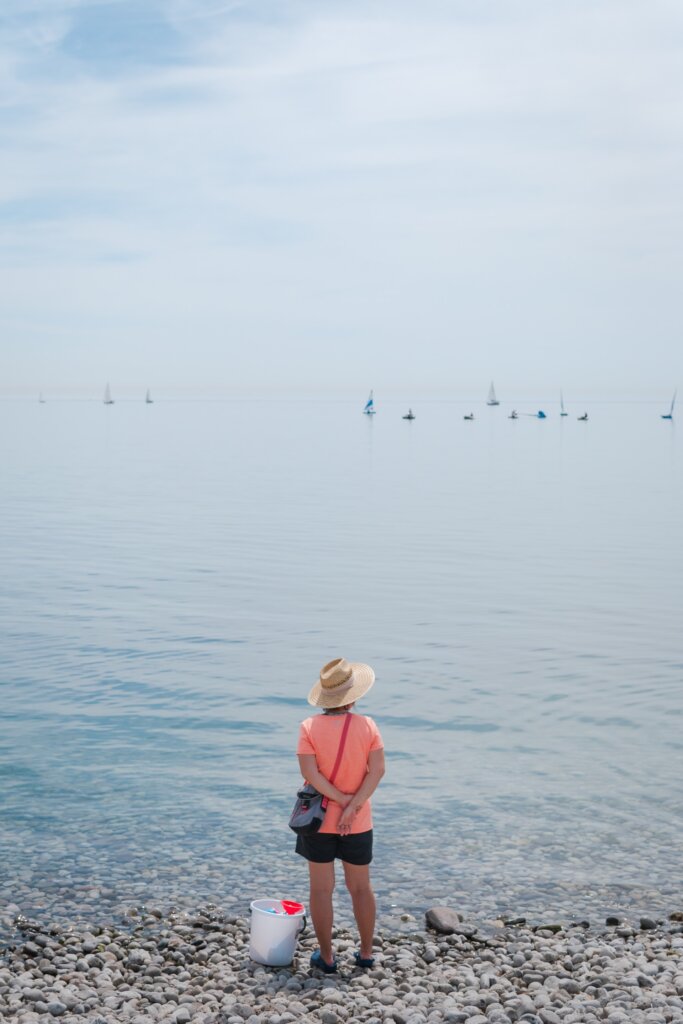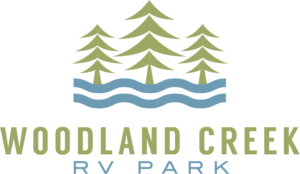Lake Safety for RVers

As RV travelers, you can experience freshwater and saltwater lakes across the country. Our favorite 5-star Woodland Creek RV Park in Tyler, TX, has all the desired amenities, including endless water fun. Because we care about our campers, we cannot overstress the importance of Lake Safety.
Often, people think of lakes as “safe” – lakes don’t have current like rivers, and they are certainly much smaller than the ocean. However, it’s not wise to think of a lake as the natural version of a swimming pool. No two lakes are alike, and they all have features that can be dangerous.
All travelers are in search of a good time: relaxation, recreation, and simple “me time.” Because there are two ways to live it up on our lakes: swimming and boating (with or without power), it pays to be water-savvy.
Lake Safety: Swimming
Many Texas lakes have swimming areas with lifeguards and “no wake” zones, but other areas offer natural shorelines and great places to swim. It’s always wise to check out the site where you want to swim before your family jumps in.
We all know how imperative it is to keep our loved ones safe around the water. By remembering these tips, you can ensure a good time for everyone while protecting your loved ones:
- Ensure that all children know to stay clear of water unless they are with an adult. Also, be aware of your limitations; don’t send one adult with 20 children!
- If you’re the observer, pay attention to the people swimming. Sorry, no cell phones!
- Make sure you and all your group members know how to swim or are under continuous and close watch while in the water. Being on the shore and seeing someone in trouble beyond your reach does no good; this goes for adults and children.
- Walk into the water. Understand that this is a natural environment, not a swimming pool. You are still determining what the bottom will feel like. Always enter unknown or shallow water feet first, which does NOT include jumping off bridges or cliffs! You sure don’t need a broken body.
- Watch out for things underwater, including fish, slimy plants, rocks, trees, or old dock boards.
- Learn cardiopulmonary resuscitation (CPR) and how to help a person recover from drowning.
- Watch the weather forecasts, and don’t go swimming when thunderstorms are nearby or when you can hear ANY thunder.
Lake Safety: Boating
We’re talking about all kinds of boats, from paddleboards to canoes to kayaks to power boats. The opportunities for fun and challenges for safety are similar. To begin, let’s look at some discouraging but helpful statistics.
- In the United States, 658 people died in boating accidents and 2,641 were injured in 2021.
Check out these statistics: - Eighteen percent of boating deaths in the United States are due to alcohol use. Boaters should understand the risks associated with operating a vessel while impaired. Boaters should always practice responsible use of alcohol when on the water.
- Wearing a life jacket is an easy and effective way to prevent drowning in boating accidents. Where the data shows the cause of death, 75% of fatal boating accident victims drowned. Are you aware that 86% of drowning victims were not wearing a life jacket? It’s a simple safety measure that can make a huge difference. Stay safe out there!
- Everyone on the boat should wear a properly fitted life jacket, no matter how well they think they can swim. Don’t stuff life jackets into a compartment where you can’t get to them – wear them!
- Boating safety education is essential to reduce the risk of accidents. It can help boaters understand the basics of navigation, steering, and other safety procedures. According to recent statistics, a staggering 77% of boating-related deaths occurred when the operator had not received such instructions.
- Of all boat-related deaths, more than 75% were due to drowning. Boat types with the highest percentage of death were open motorboats (50%), kayaks (15%), and pontoon boats (9%). The remaining 26% of deaths happened because of sailboats, canoes, and other watercrafts.
Be on the Lookout
- Look out for navigation hazards; they can jump out at you when you’re not looking, so it’s always smart to designate one person (an adult or teen who can keep their mind on business) as your spotter. Lakes are popular, and you want to avoid being the one who runs into or over a dock, tree, boat, or person!
- If your group plans to waterski or pull a tube, set your hand signals ahead of time. It’s fun to pull kids on a tube, but they are especially vulnerable to drowning and may not remember the signals if they panic; that’s what your spotter is for. Know and share at least the following: go faster, go slower, go left or right, I’m OK, I’m done, get me back in the boat.
Nighttime Boating
- If you’re going out at night, know what you’re doing! All states require watercraft (including boats, kayaks, canoes, etc.) to comply with specific lighting rules from dusk to dawn or during fog or rain. Motorboats must have sidelights, a masthead light, and a stern light. Sailboats must have a sidelight and a stern light, and rowed or paddled boats must display a white light to avoid a collision. And don’t go faster than you can see.
Use The Buddy System
Don’t go out alone. At minimum, let your friends and family know your whereabouts. While being alone on a boat or in the water may feel like an escape, please don’t do it. A general rule followed by those who paddle dangerous whitewaters is that one person is an accident, two people provide a witness to the accident, and it takes three to be safe and help in case of an accident.
As long as you know lake safety, you’re prepared to have fun on the water, and if you’re looking for some water fun, Woodland Creek RV Park has everything you need.
Remember, the lake holds more than water; it holds memories created with your family that last a lifetime. Take time to learn the necessary precautions and prepare for emergencies so you can look back on your time together as the best time of your life! Call us today to book your reservation.

